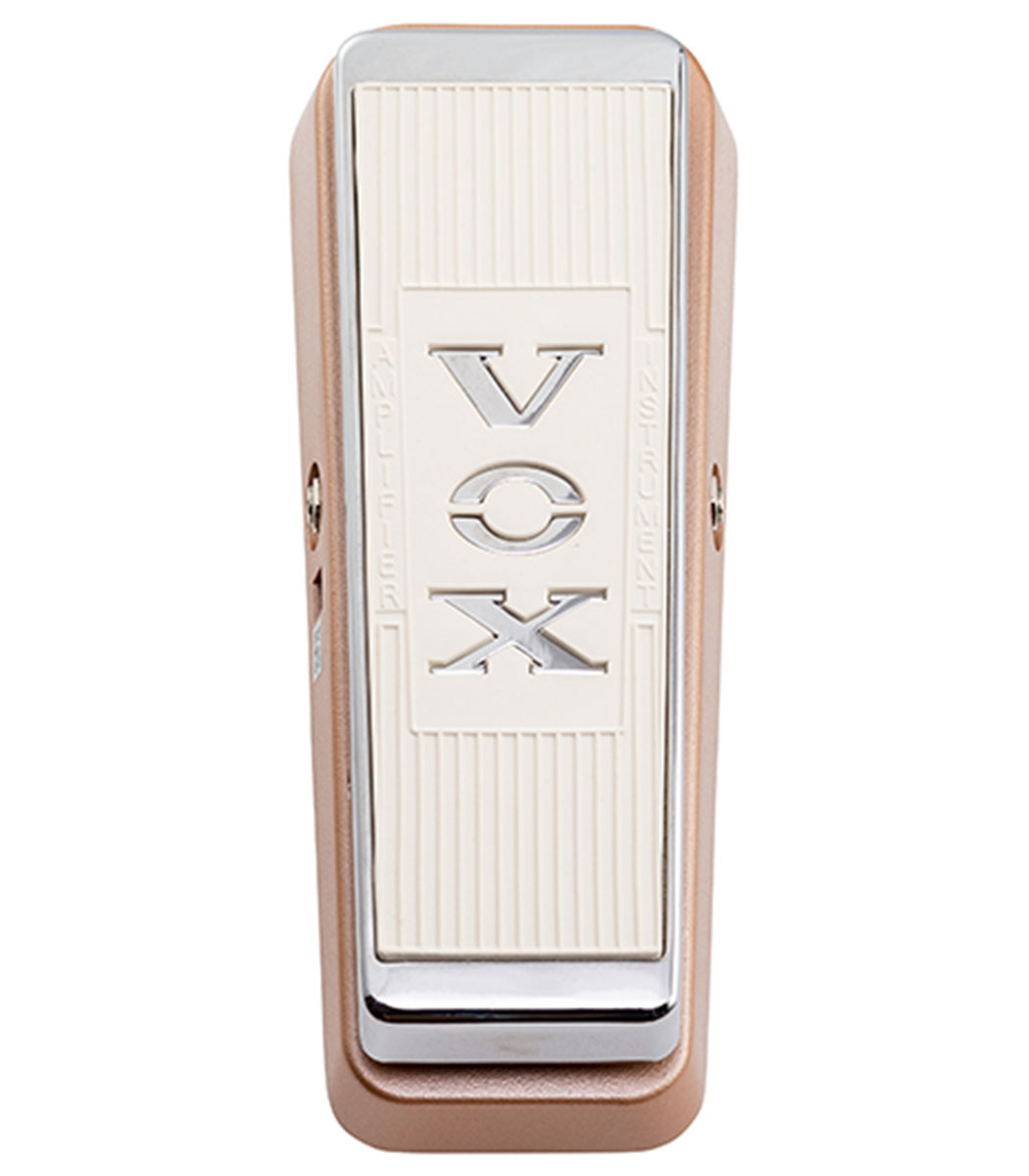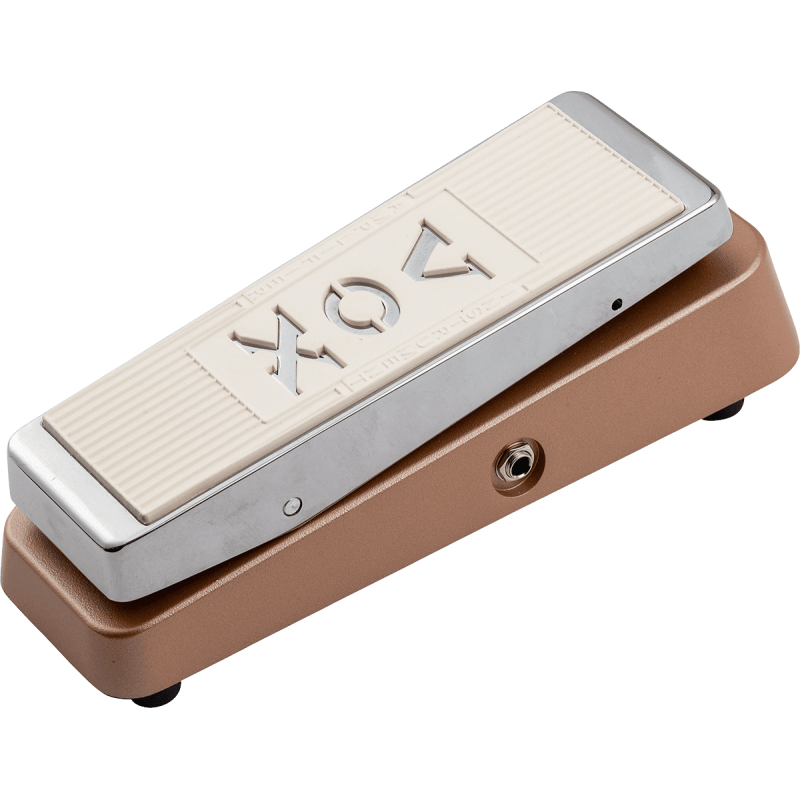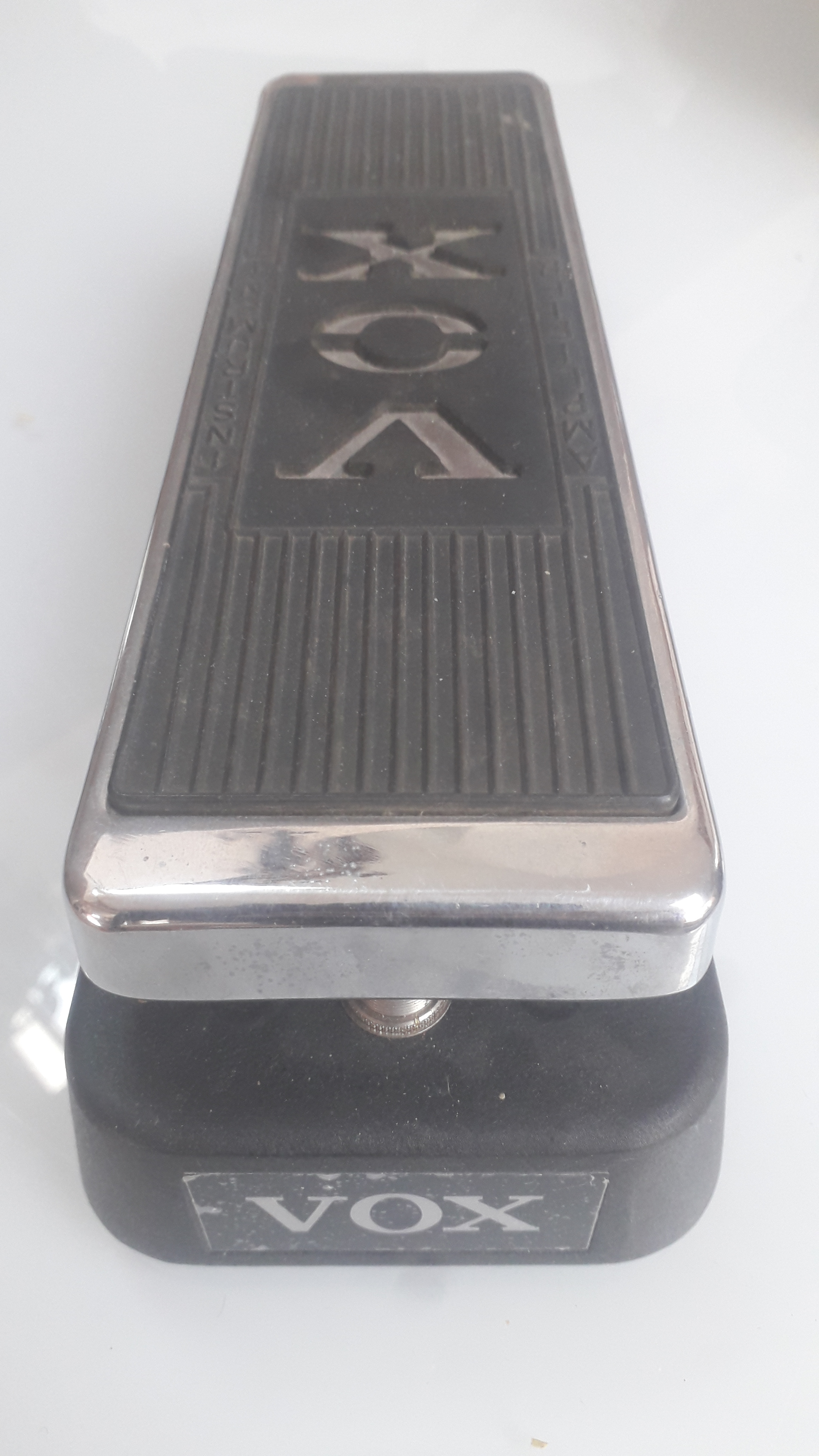

These additions will benefit players of all genres who use a wah pedal as an integral part of their sound. The pedal’s inductor has undergone a redesign to be closer in specification to the original VOX wah inductors, for improved dynamics and tone.

Based on the specifications of the original pedal developed by VOX in the '60s, the new Wah-Wah offers guitarists the same legendary tone with the addition of AC power capability and a buffered input jack for preserving the unprocessed guitar tone when the pedal is not engaged.

A deal was struck and the Dunlop produced V847 Vox Wah-Wah started a twelve year run in the Vox product line up in 1994.The new V847 Wah-Wah pedal is an enhanced version of the most famous guitar effects pedal of all time.

It seemed natural that Korg would approach Dunlop Manufacturing to produce a reissue Vox wah pedal. Korg purchased the Vox brand from Rose Morris in 1992. They introduced a number of "artist signature" models and also developed a line of custom inductors and 100k pots especially designed for use in wah pedals. Dunlop installed socketed multi-pin connectors on their wah circuit boards for ease of construction and repair. Over the years, Dunlop Manufacturing made a number of design updates to the Crybaby. As the Vox trademark was now held worldwide by Rose Morris in the UK, Dunlop could only produce pedals with the Crybaby branding. After some research, Dunlop made an offer to the appropriate parties and purchased the rights to produce the Crybaby wah pedal. Founder Jim Dunlop became aware that due to the closing of Thomas International, the iconic Crybaby pedal had been off the market for some time. Prior to 1981, Dunlop Manufacturing had concentrated on producing guitar accessories such as slides, capos and picks. The loss of interest in home organs caused Thomas to permanently close their doors in 1979, ending Vox wah and Crybaby production. Vox wah and Crybaby pedal production continued in Chicago, but not for long. Thomas Organ was reorganized as the "Thomas International Corporation" and relocated to the north west suburbs of Chicago. Soon after, Whirlpool shuttered the Thomas Organ plant in Sepulveda CA, signaling the end of Warwick Electronics. Whirlpool sold the Warwick television factory and it's lucrative production contract with Sears to the Japanese firm Sanyo Electronics in December 1976. Japanese competition for the consumer electronics business at Sears proved too much for Warwick. While some wah pedals were produced for Thomas by JEN in Italy, many others were produced at the Thomas Organ facilities in Sepulveda CA. Warwick Electronics was owned by Whirlpool.Įven though Thomas Organ ended Vox amplifier production in 1972, they continued to produce Vox wah and Crybaby pedals throughout the seventies. Thomas Organ was a subsidiary of Warwick Electronics who also produced televisions, stereos and radios for Sears. Thomas Organ owned the sole rights to produce Vox products in North America from 1965 through 1979. Wah Production Shifts from Thomas Organ to Dunlop Vox replaced the Dunlop produced V847 with the Chinese made V847A in 2007. Dunlop also produced two limited editions of the V847 for Vox: the gold plated V847G (1994) and the V847UJ (2002-2004) with Union Jack graphics. It was produced under contract to Vox by Dunlop Manufacturing of Benitia CA. The Vox V847 Wah-Wah pedal was offered by Vox from 1994 through 2006.


 0 kommentar(er)
0 kommentar(er)
